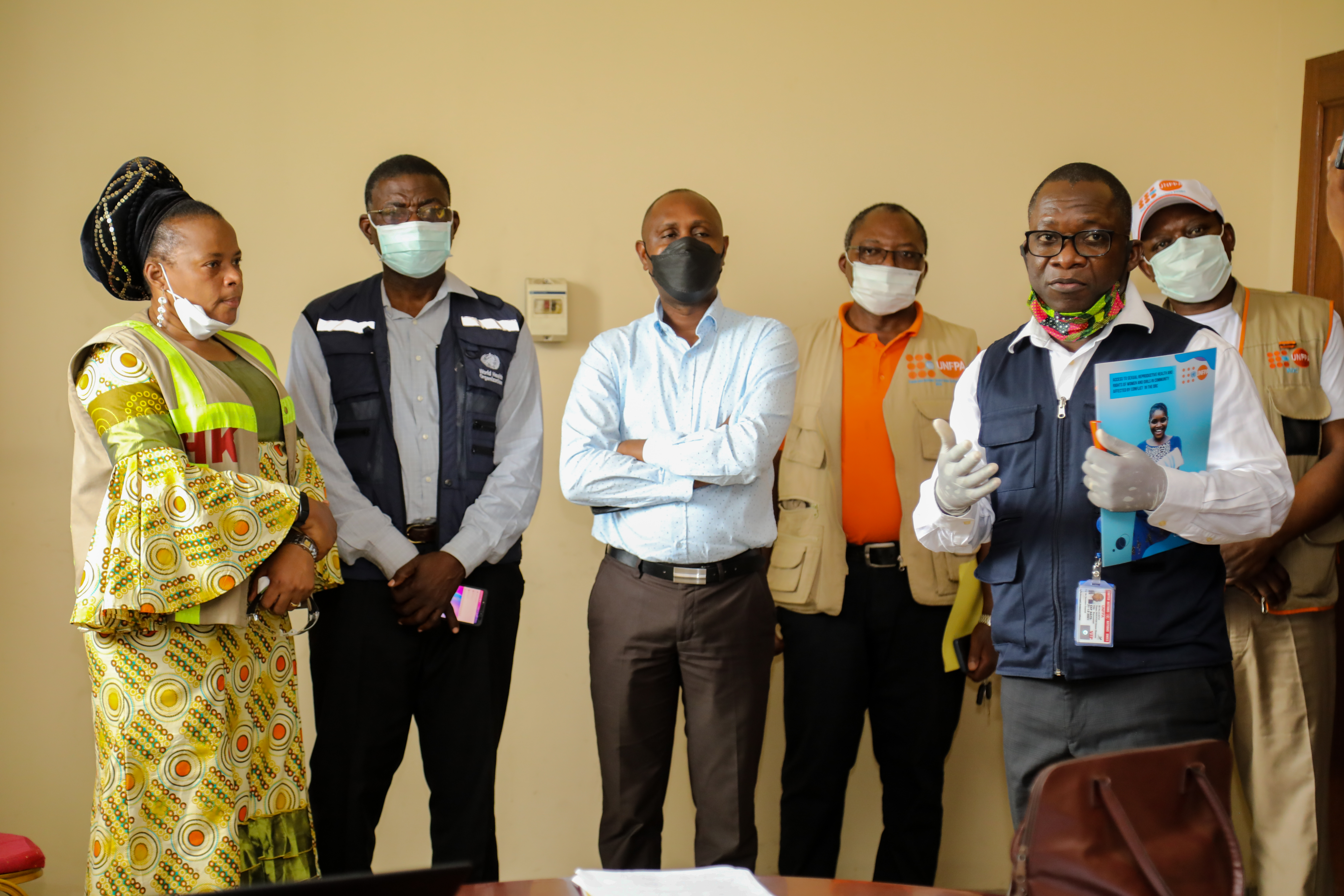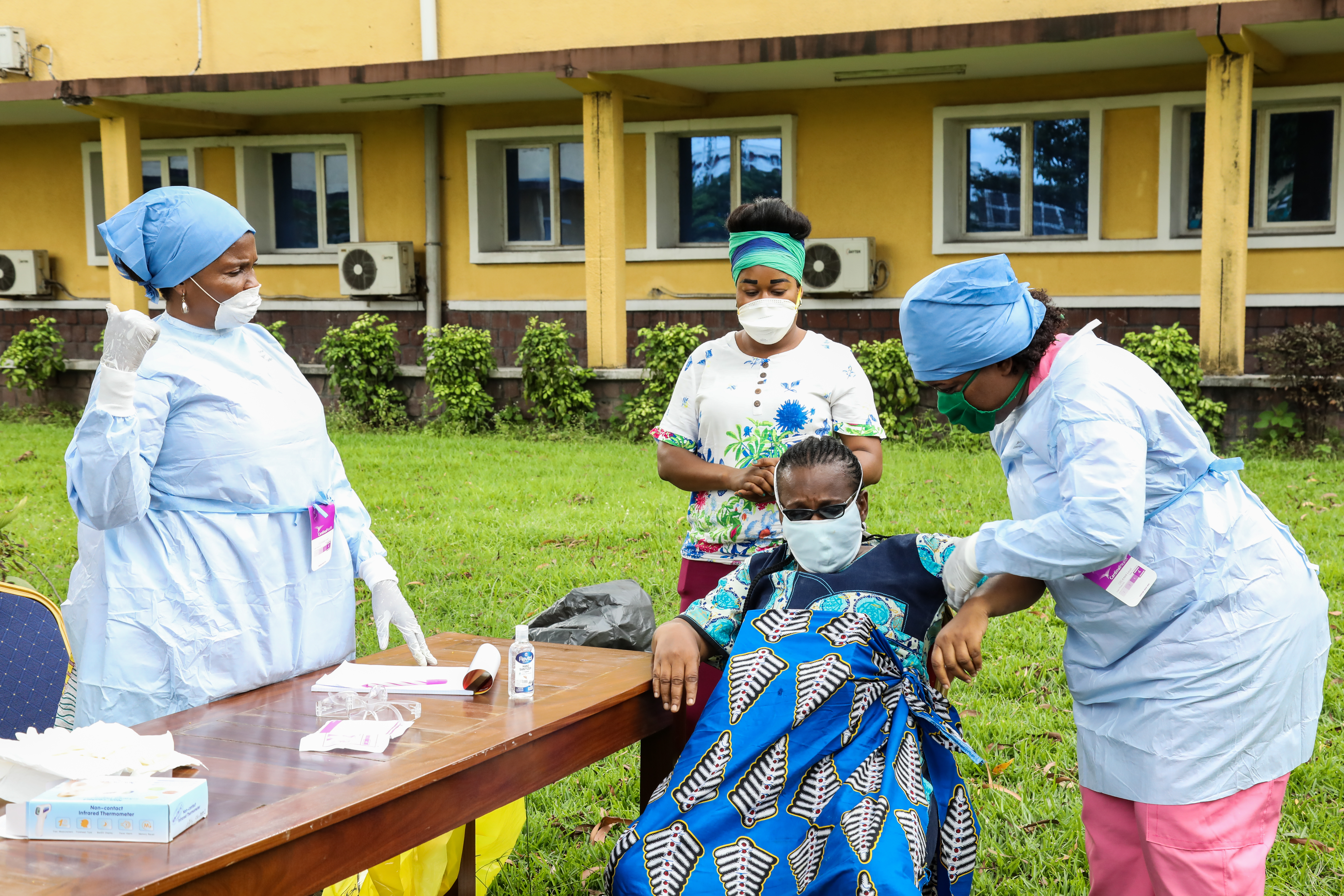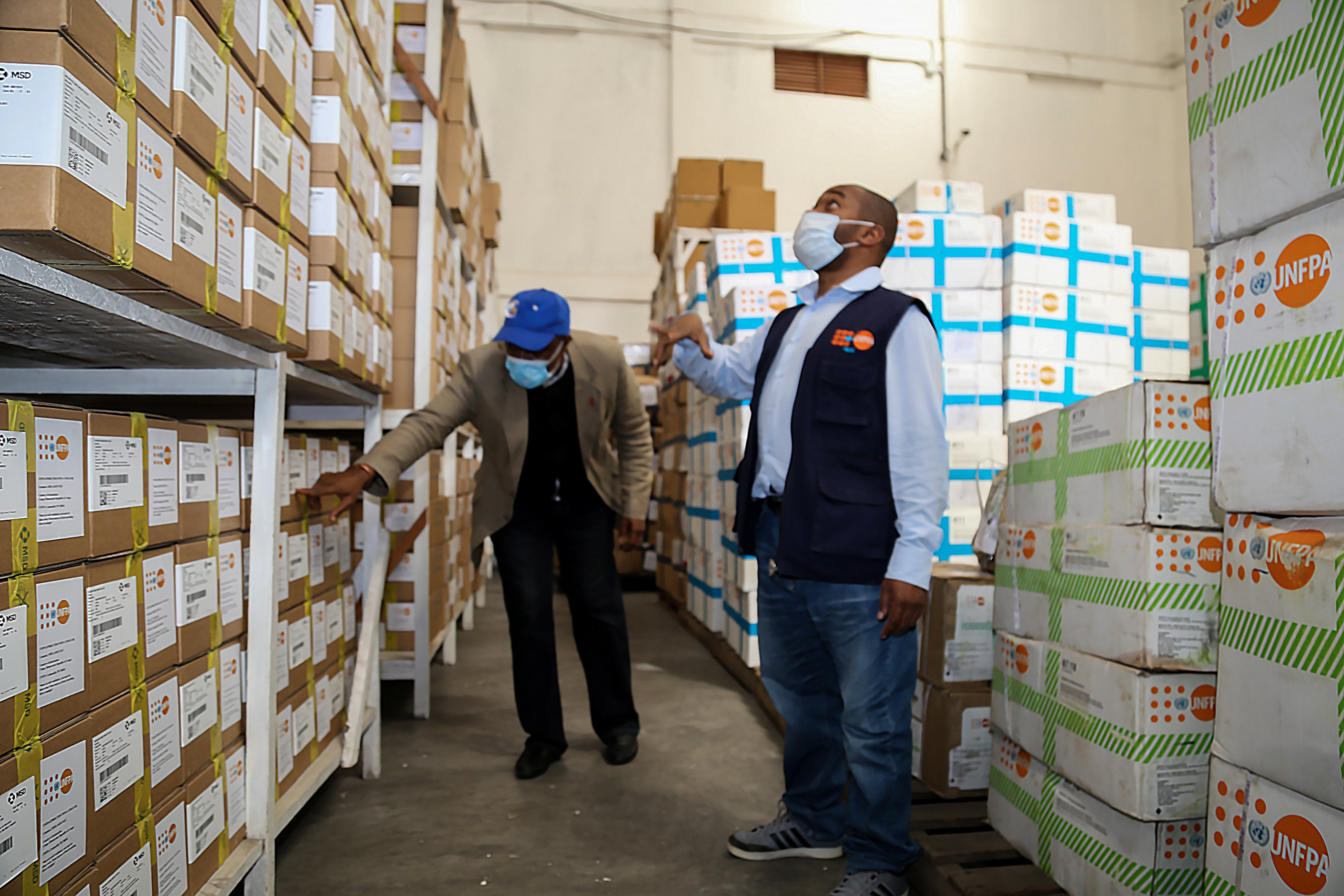While providing the Congolese government with two medical ambulances for the follow-up of contacts, evacuation of bedridden patients, awareness campaigns, inter-hospital transport of patients and supplies for the care of COVID-19, the UNFPA Representative in Kinshasa, Dr Sennen Hounton at the start of the COVID-19 response had promised in mid-April 2020 to intensify efforts through promoting the protection of health personnel working in the country’s obstetric facilities against the disease.

Less than two weeks later, he launched alongside the country Representative of the World Health Organization (WHO) and the Coordinator of the Multisectoral Committee for the fight against COVID-19 in the DRC, Prof Steeve Ahuka a series of trainings aimed at developing skills and reflexes of midwives to ensure zero transmission of the virus as they carry out their noble function of assisting women to give life. Through a proactive partnership, these institutions joined forces to strengthen the capacities of essential obstetric and neonatal care providers.
On behalf of the National counterpart, Professor Ahuka said “in our response plan, the protection of caregivers occupies a very important place, because other non-Covid-19 care must continue in our health structures, including in our maternities”.

For a start in the capital city of Kinshasa which is the epicenter of the pandemic in DRC, about one hundred and twenty midwives working in high-risk areas will be equipped to prevent and control the infection. They are expected to adapt and improve their knowledge on strategies to fight against Covid-19 and also increase their competencies in the implementation of personal protective measures in their daily professional practice. Emphasis is also laid on mechanisms and gestures that will create barriers to any form of COVID-19 contamination and contact with biological fluids during the care and operations leading to giving life, especially those related to childbirth, adequate monitoring of a pregnancy and preparation for safe child birth.
In addition to two mobile clinics equipped, inter alia, with artificial respirators, UNFPA provides direct support to fifty (70) maternity units in the city of Kinshasa- the epicenter of the disease.
Around Lake Kivu where the disease made a brief appearance, the UN agency strengthened the capacity of Provincial Reproductive Health Program (PNSR) to manage the increased risks of sexual violence that could result from the confinement measures put in place.
Moreover, communities of Bas-Uele province also benefited from protective equipment from UNFPA provided through MONUSCO and UNAIDS to ensure that confinement measures do not negatively impact supply chains and the provision of services for family planning and sexual and reproductive health.
The UNFPA Country office in DRC based in Kinshasa also launched aggressive community campaign and advocacy on issues of violence against women and girls in collaboration with the Ministry of Gender, Family and Children, Associations of women leaders and activists, with special focus on its supported Integrated Multisectoral Services Centers for the holistic management of rape survivors.



